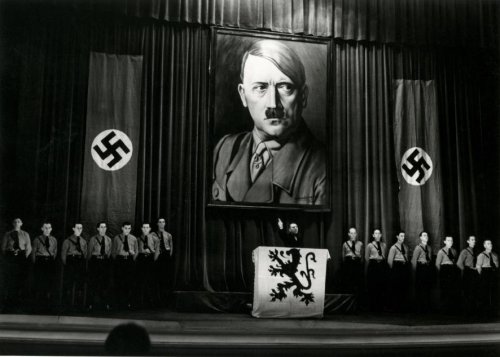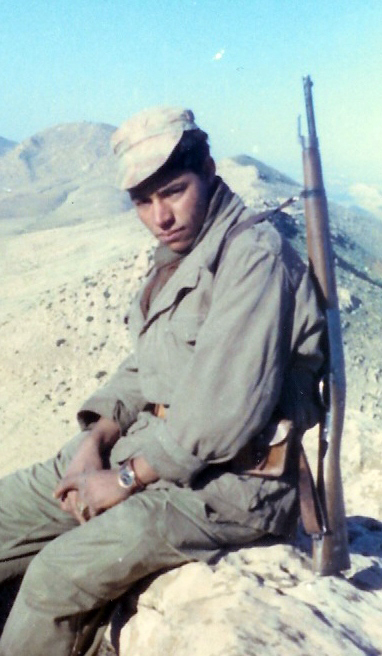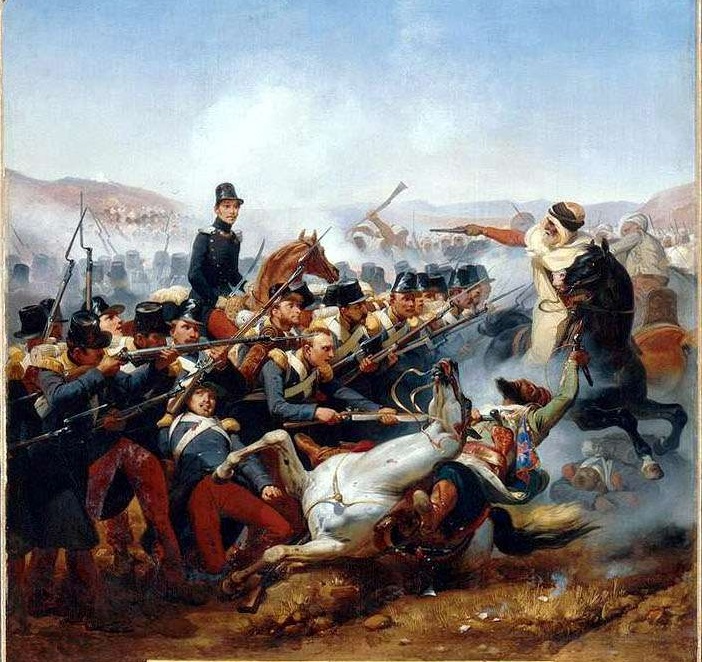|
Collaborationism
Wartime collaboration is cooperation with the enemy against one's country of citizenship in wartime. As historian Gerhard Hirschfeld says, it "is as old as war and the occupation of foreign territory". The term ''collaborator'' dates to the 19th century and was used in France during the Napoleonic Wars. The meaning shifted during World War II to designate traitorous collaboration with the enemy. The related term ''collaborationism'' is used by historians who restrict the term to a subset of ideological collaborators in Vichy France who actively promoted German victory. Etymology The term ''collaborate'' dates from 1871, and is a back-formation from collaborator (1802), from the French ''collaborateur''. It was used during the Napoleonic Wars against smugglers trading with England and assisting in the escape of monarchists. It is derived from the Latin ''collaboratus'', past participle of ''collaborare'' "work with", from ''com''- "with" + ''labore'' "to work". The meaning of "tra ... [...More Info...] [...Related Items...] OR: [Wikipedia] [Google] [Baidu] |
Collaboration With Nazi Germany And Fascist Italy
In World War II, many governments, organizations and individuals Collaborationism, collaborated with the Axis powers, "out of conviction, desperation, or under coercion". Nationalists sometimes welcomed German or Italian troops they believed would liberate their countries from colonization. The Danish, Belgian and Vichy French governments attempted to appease and bargain with the invaders in hopes of mitigating harm to their citizens and economies. Some countries' leaders such as Henrik Werth of Axis member Hungary, cooperated with Italy and Germany because they wanted to regain territories lost during and after World War I, or which their nationalist citizens simply coveted. Others such as France already had their own burgeoning fascist movements and/or antisemitic sentiment, which the invaders validated and empowered. Individuals such as Hendrik Seyffardt in the Netherlands and Theodoros Pangalos in Greece saw collaboration as a path to personal power in the politics of their ... [...More Info...] [...Related Items...] OR: [Wikipedia] [Google] [Baidu] |
Vichy France
Vichy France (; 10 July 1940 – 9 August 1944), officially the French State ('), was a French rump state headed by Marshal Philippe Pétain during World War II, established as a result of the French capitulation after the Battle of France, defeat against Germany. It was named after its seat of government, the city of Vichy. Officially independent, but with half of its Metropolitan France, territory occupied under the harsh terms of Armistice of 22 June 1940, the 1940 armistice with Nazi Germany, it adopted Collaboration with Nazi Germany and Fascist Italy, a policy of collaboration. Though Paris was nominally its capital, the government established itself in Vichy in the unoccupied "free zone" (). The German military administration in occupied France during World War II, occupation of France by Germany at first affected only the northern and western portions of the country. In November 1942, the Allies Operation Torch, occupied French North Africa, and in response the Germa ... [...More Info...] [...Related Items...] OR: [Wikipedia] [Google] [Baidu] |
Montoire-sur-le-Loir
Montoire-sur-le-Loir (, literally ''Montoire on the Loir''), commonly known as Montoire, is a commune near Vendôme, in the Loir-et-Cher department in Centre-Val de Loire, France. History Montoire-sur-le-Loir is known as the location where, on 24 October 1940, the famous handshake between Adolf Hitler and Philippe Pétain took place signifying the start of organised collaboration of Vichy France with the Nazi regime. The meeting took place in a railway car just outside the town's railway station. The discussion was entirely a matter of generalities, with no specifics discussed or decided. Hitler was impressed with Pétain's commitment to defending the French colonial empire. False rumours abounded that France had made major concessions regarding colonies and German control of French ports and the French fleet. This was announced to the French public on 30 October in a radio broadcast speech when Pétain declared, "I enter, today, into the way of collaboration.""J'entre au ... [...More Info...] [...Related Items...] OR: [Wikipedia] [Google] [Baidu] |
Harki
''Harki'' (adjective from the Algerian Arabic "''ḥarka''", standard Arabic "''ḥaraka''" �ركة "war party" or "movement", i.e., a group of volunteer militia) is the generic term for native Muslim Algerians who served as auxiliaries alongside the French Army during the Algerian War from 1954 to 1962. The word sometimes applies to all Algerian Muslims (thus including civilians) who supported French Algeria during the war. The motives for enlisting were mixed. They were regarded as traitors in independent Algeria and thousands of them were reportedly killed after the war in reprisals, despite the Évian Accords ceasefire and amnesty stipulations. President Charles de Gaulle controversially made the decision to not give the Harkis sanctuary in France, viewing them as "soldiers of fortune" who should be discharged as soon as possible. In France the term can apply to ''Franco-musulmans rapatriés'' (repatriated French Muslims) living in the country since 1962 - and to their metr ... [...More Info...] [...Related Items...] OR: [Wikipedia] [Google] [Baidu] |
Mamluk
Mamluk or Mamaluk (; (singular), , ''mamālīk'' (plural); translated as "one who is owned", meaning "slave") were non-Arab, ethnically diverse (mostly Turkic, Caucasian, Eastern and Southeastern European) enslaved mercenaries, slave-soldiers, and freed slaves who were assigned high-ranking military and administrative duties, serving the ruling Arab and Ottoman dynasties in the Muslim world. The most enduring Mamluk realm was the knightly military class in medieval Egypt, which developed from the ranks of slave-soldiers. Originally the Mamluks were slaves of Turkic origins from the Eurasian Steppe, but the institution of military slavery spread to include Circassians, Abkhazians, Georgians, Armenians, Russians, and Hungarians, as well as peoples from the Balkans such as Albanians, Greeks, and South Slavs (''see'' Saqaliba). They also recruited from the Egyptians. The "Mamluk/Ghulam Phenomenon", as David Ayalon dubbed the creation of the specific warrior class, was ... [...More Info...] [...Related Items...] OR: [Wikipedia] [Google] [Baidu] |
Afrancesado
''Afrancesado'' (, ; "Francophile" or "turned- French", lit. "Frenchified" or "French-alike") refers to the Spanish and Portuguese partisan of Enlightenment ideas, Liberalism, or the French Revolution, that supported Napoleon's occupation as a means to implant these ideas in Spain. In principle, ''afrancesados'' were upper-and-middle class supporters of the French occupation of Iberia (Portugal and Spain), preferring the reforms of the " enlightened despots" Napoleon I and his brother Joseph Bonaparte (installed by Napoleon as King of Spain) or, as a lesser evil, preferring to avoid the consequences of outright war with the greatest military power in Europe.Joes, Anthony James''Guerrilla Conflict Before the Cold War'', pp. 109-110. Greenwood Publishing Group, 1996.Google Books. Retrieved 28 January 2019. Spain Origins In Spain, the term ''afrancesado'' surfaced during the reign of Charles III, and had a neutral meaning, being used to designate those who followed French fash ... [...More Info...] [...Related Items...] OR: [Wikipedia] [Google] [Baidu] |
Algeria
Algeria, officially the People's Democratic Republic of Algeria, is a country in the Maghreb region of North Africa. It is bordered to Algeria–Tunisia border, the northeast by Tunisia; to Algeria–Libya border, the east by Libya; to Algeria–Niger border, the southeast by Niger; to Algeria–Western Sahara border, the southwest by Mali, Mauritania, and Western Sahara; to Algeria–Morocco border, the west by Morocco; and to the north by the Mediterranean Sea. The capital and List of cities in Algeria, largest city is Algiers, located in the far north on the Mediterranean coast. Inhabited since prehistory, Algeria has been at the crossroads of numerous cultures and civilisations, including the Phoenicians, Numidians, Ancient Rome, Romans, Vandals, and Byzantine Greeks. Its modern identity is rooted in centuries of Arab migrations to the Maghreb, Arab Muslim migration waves since Muslim conquest of the Maghreb, the seventh century and the subsequent Arabization, Arabisation ... [...More Info...] [...Related Items...] OR: [Wikipedia] [Google] [Baidu] |
French Algeria
French Algeria ( until 1839, then afterwards; unofficially ; ), also known as Colonial Algeria, was the period of History of Algeria, Algerian history when the country was a colony and later an integral part of France. French rule lasted until the end of the Algerian War which resulted in Algeria's Independence Day (Algeria), gaining independence on 5 July 1962. The French conquest of Algeria began in 1830 with the Invasion of Algiers (1830), invasion of Algiers which toppled the Regency of Algiers, though Algeria was not fully conquered and Pacification of Algeria, pacified until 1903. It is estimated that by 1875, approximately 825,000 indigenous Algerians were killed. Various scholars describe the French conquest as genocide. Algeria was ruled as a French colony, colony from 1830 to 1848, and then as multiple Departments of France#Departments of Algeria (Départements d'Algérie), departments, an integral part of France, with the implementing of the French Constitution of 18 ... [...More Info...] [...Related Items...] OR: [Wikipedia] [Google] [Baidu] |
Algerian War
The Algerian War (also known as the Algerian Revolution or the Algerian War of Independence) ''; '' (and sometimes in Algeria as the ''War of 1 November'') was an armed conflict between France and the Algerian National Liberation Front (Algeria), National Liberation Front (FLN) from 1954 to 1962, which led to Algeria winning its independence from France. * * * * * * An important decolonization war, it was a complex conflict characterized by guerrilla warfare and war crimes. The conflict also became a civil war between the different communities and within the communities. The war took place mainly on the territory of Algeria, with repercussions in metropolitan France. Effectively started by members of the FLN on 1 November 1954, during the ("Red All Saints' Day"), the conflict led to serious political crises in France, causing the fall of the Fourth French Republic, Fourth Republic (1946–58), to be replaced by the Fifth French Republic, Fifth Republic with a strengthened pres ... [...More Info...] [...Related Items...] OR: [Wikipedia] [Google] [Baidu] |
French Army
The French Army, officially known as the Land Army (, , ), is the principal Army, land warfare force of France, and the largest component of the French Armed Forces; it is responsible to the Government of France, alongside the French Navy, French Air and Space Force, and the National Gendarmerie. The Army is commanded by the Chief of Staff of the French Army (CEMAT), who is subordinate of the Chief of the Defence Staff (France), Chief of the Defence Staff (CEMA), who commands active service Army units and in turn is responsible to the President of France. CEMAT is also directly responsible to the Ministry of Armed Forces (France), Ministry of the Armed Forces for administration, preparation, and equipment. The French Army, following the French Revolution, has generally been composed of a mixed force of conscripts and professional volunteers. It is now considered a professional force, since the French Parliament suspended the Conscription in France, conscription of soldiers. Acc ... [...More Info...] [...Related Items...] OR: [Wikipedia] [Google] [Baidu] |






